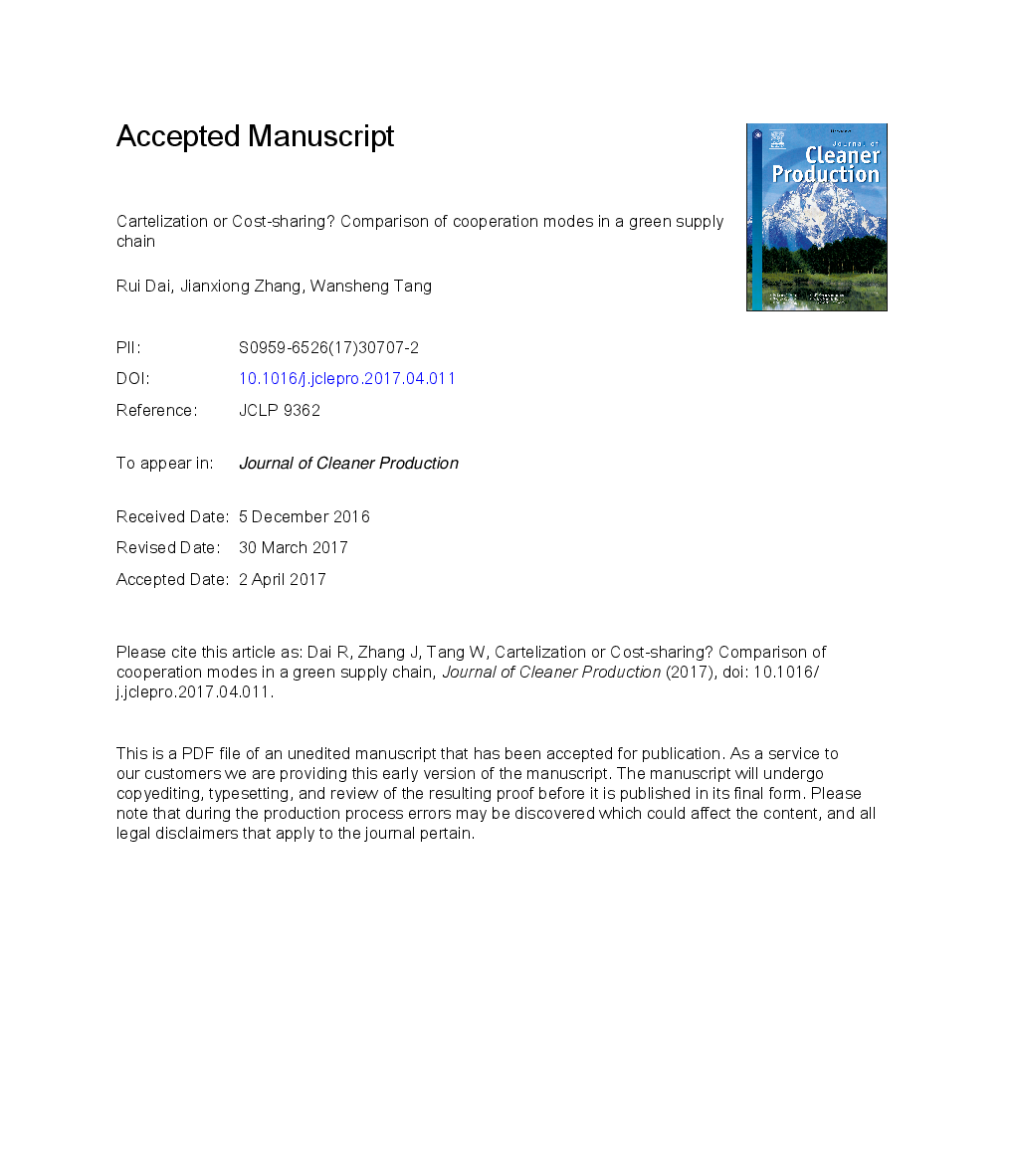ترجمه فارسی عنوان مقاله
توقیف یا توزیع هزینه؟ مقایسه حالت های همکاری در زنجیره عرضه سبز
عنوان انگلیسی
Cartelization or Cost-sharing? Comparison of cooperation modes in a green supply chain
| کد مقاله | سال انتشار | تعداد صفحات مقاله انگلیسی |
|---|---|---|
| 96257 | 2017 | 33 صفحه PDF |
منبع

Publisher : Elsevier - Science Direct (الزویر - ساینس دایرکت)
Journal : Journal of Cleaner Production, Volume 156, 10 July 2017, Pages 159-173
ترجمه کلمات کلیدی
مدیریت زنجیره تامین، زنجیره تامین سبز، توقیف خودرو، قرارداد به اشتراک گذاری هزینه، بهبود پارتو،
کلمات کلیدی انگلیسی
Supply chain management; Green supply chain; Cartelization; Cost-sharing contract; Pareto-improving;

